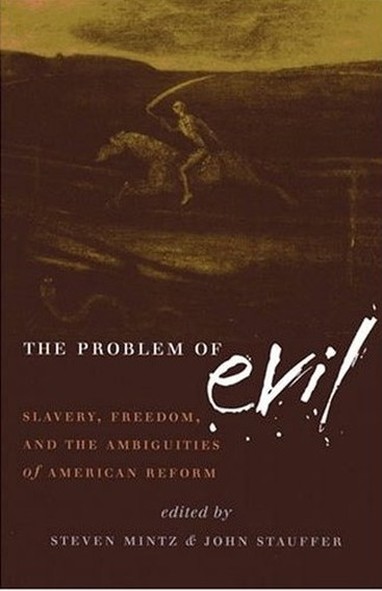The Problem of Evil: Slavery, Freedom, and the Ambiguities of American Reform (2007)
|
A collective effort to present a new kind of moral history, this volume seeks to show how the study of the past can illuminate profound ethical and philosophical issues. More specifically, it addresses a variety of questions raised by the history of American slavery. How did freedom become one of the most cherished values in the Western world? How has the language of slavery been applied to other instances of exploitation? To what extent is America's high homicide rate a legacy of slavery? Did the abolitionist movement's tendency to view slavery as a product of sin, rather than as a structural and economic problem, accelerate or impede emancipation?
Divided into four parts, the essays provide succinct guides to the evolution of American slavery, the origins of antislavery thought, the challenges of emancipation, and the legacy of slavery. They also offer fresh perspectives on key individuals and shed new light on the differences between female and male critiques of slavery, the defense of slavery by the South's intellectual elite, and Catholic attitudes. Above all, this book helps us understand the circumstances that allow social evils to happen, how intelligent and ostensibly moral people can participate in the most horrendous crimes, and how some individuals are able to rise above their circumstances and expand our moral consciousness. * Association of American University Presses Award (2008) |
Slavery's unequivocal evil lies at the heart of debates over apologizing for America's 'peculiar institution' and awarding reparations. In The Problem of Evil, a provocative collection of original essays, the editors Steven Mintz and John Stauffer, along with 23 contributors, admonish scholars to place moral questions in general, but especially American slavery and its legacy, at the center of their work.... The contributors to this excellent collection largely sidestep defining and comparing degrees of evil, but they nevertheless remind us of slavery's timelessness and the ubiquity of moral wrongs. Focusing on evil enables us to see, if not feel, the wicked acts that persons inflict on one another—what Stauffer eloquently terms 'the dark side of the American soul'--Chronicle of Higher Education
Uniformly thoughtful and well-written.... I strongly recommend The Problem of Evil as a resource--H-Net, H-Law
Wide-ranging in topic and time span.... Putting together a volume on the implications of evil for the study of American history is a tremendously significant undertaking, especially in post- 9/11 America. Contributing to the worthiness of this project are the superb introductory essays by the editors.... This volume is strongly recommended as a companion book for survey classes on American history and for historiography classes for its insistence that history writing be morally informed--H-Net, H-CivWar
The problem of evil is indeed a very important theme that we have too long side-stepped as research scholars. It lingers next to or beneath so much scholarship on slavery, on war, on our heritage of racism and discrimination, on our study of violence generally. This is the dark side of the human condition and that, frankly, is where so much history that re-shapes society takes place. In America we still have to remind ourselves of the evil embedded in our nature, our institutions, our past. Thus, the overall theme of this book is really important at this moment in history--David Blight

